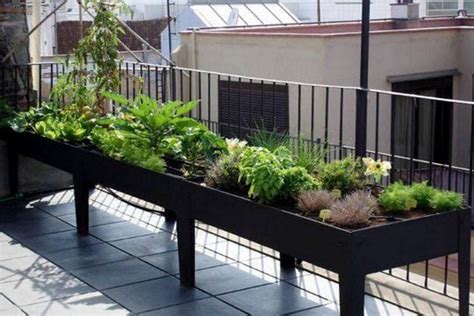How to Successfully Organize a Balcony Garden Workshop: Tips, Design, and Growth Strategies
With urban gardening on the rise, hosting a balcony garden workshop is an excellent way to educate a community about growing plants in small spaces. By teaching participants how to design, plant, and care for their balcony gardens, you empower them with the knowledge and skills to nurture their own green spaces, regardless of urban constraints. This article will guide you through the key steps to host an engaging and effective balcony garden workshop, ensuring a rewarding experience for both beginners and seasoned gardeners.
Key Concepts of Balcony Gardening
- Container Gardening: Using pots, planters, or other containers to grow plants in restricted spaces.
- Vertical Gardening: A design method that maximizes vertical space to grow plants upwards, perfect for balconies.
- Companion Planting: Combining plants that benefit each other when grown together to improve growth and reduce pests.
- Water Management: Efficient watering techniques for balcony gardens to ensure adequate hydration without overwatering.
- Sunlight and Shade Optimization: Determining the amount of sunlight needed and designing the garden layout accordingly.
Historical Context of Urban Gardening
Urban gardening has a long history, evolving from necessity during wartime to a lifestyle choice in contemporary urban environments. During WWII, the concept of “Victory Gardens” became widespread, where citizens were encouraged to grow their own food in urban spaces to supplement food shortages. Fast forward to today, and urban gardening, particularly balcony gardening, has grown in popularity as people seek sustainable living solutions and closer connections to nature. The balcony garden workshop taps into this tradition, adapting it for modern city dwellers facing space limitations.
Current State of Balcony Gardening: Trends and Community Growth
Today, balcony gardening has become an essential part of urban sustainability movements. With an increased focus on climate change, environmental conservation, and food security, city residents are turning to their balconies to cultivate green spaces. Workshops teaching these skills are crucial in helping people design functional, aesthetic, and environmentally friendly balcony gardens. Participants typically seek out balcony gardening workshops for practical tips on container selection, plant care, and vertical design, while also building connections with other like-minded individuals.
Practical Applications in Balcony Gardening Workshops
The aim of any balcony gardening workshop is to provide hands-on experience. Ensure participants understand not only the theory of container gardening but also the following practical steps:
- Container Selection: Teach participants to choose containers based on plant size, root depth, and material durability.
- Soil and Composting: Demonstrate how to prepare nutrient-rich soil mixes suitable for container gardening.
- Plant Selection: Guide attendees on selecting the best vegetables, herbs, or ornamental plants for balconies with limited sunlight and space.
- Watering Systems: Show how to create an efficient irrigation system using drip techniques or self-watering pots.
- Fertilization: Educate on organic vs. chemical fertilizers and how to balance plant nutrition needs.
Case Studies: Successful Balcony Gardening Workshops
| City | Workshop Focus | Key Outcomes |
|---|---|---|
| New York City | Urban Sustainability and Balcony Gardens | Participants designed personalized gardens using locally-sourced materials and focused on water conservation techniques. |
| Los Angeles | Herb and Vegetable Balcony Gardens | Attendees learned about companion planting and installed vertical planters for limited space environments. |
| London | Floral Balcony Designs | Focused on aesthetic design using flowering plants while addressing pollinator-friendly practices. |
Stakeholder Analysis: Who Benefits from Balcony Gardening Workshops?
A balcony garden workshop benefits various stakeholders:
- Community Members: Gain knowledge on sustainable living and beautifying their homes.
- Urban Planners: Encourage greener cities with improved air quality and reduced urban heat islands.
- Environmentalists: See an increase in biodiversity and localized green spaces that support pollinators.
- Workshop Organizers: Position themselves as leaders in sustainable education, while also fostering community engagement.
Implementation Guidelines for Hosting a Balcony Garden Workshop
To successfully implement a balcony garden workshop, follow these steps:
- Venue Selection: Choose a location that offers access to outdoor spaces or large balconies for hands-on practice.
- Material Preparation: Have containers, plants, soil, and tools ready for participants to use during the workshop.
- Structured Agenda: Divide the workshop into sections, covering theory, design principles, and practical applications.
- Interactive Sessions: Include time for participants to design their own balcony gardens and receive personalized feedback.
- Post-Workshop Support: Offer follow-up materials, like care guides and maintenance tips, to encourage continued engagement.
Ethical Considerations in Urban Gardening
When hosting a balcony garden workshop, it’s important to address the ethical implications:
- Use of Sustainable Materials: Ensure all materials, such as pots and soil, are eco-friendly and sourced responsibly.
- Inclusivity: Make the workshop accessible to participants from various socioeconomic backgrounds.
- Waste Management: Promote zero-waste practices by encouraging composting and recycling of materials used in the garden.
Limitations and Future Research in Balcony Gardening
While balcony gardening is a versatile and popular trend, there are several limitations that need addressing:
- Space Constraints: Balconies offer limited growing space, restricting the variety and size of plants that can be grown.
- Weight Restrictions: Container gardens can become heavy, which may exceed the weight limits of some balcony structures.
- Light Availability: Many urban balconies lack sufficient sunlight, limiting plant growth.
Future research could explore advanced container technology, lightweight soil solutions, and innovations in artificial light supplementation to overcome these challenges.
Expert Commentary on Balcony Garden Workshops
Hosting a balcony garden workshop is more than just teaching people to grow plants. It’s about fostering a community and sharing sustainable practices that empower individuals to take control of their living spaces. As more people look for ways to live greener and healthier lives, balcony gardening will continue to grow in popularity. By offering practical guidance, educational workshops can bridge the gap between urban life and nature, creating greener cities one balcony at a time.


